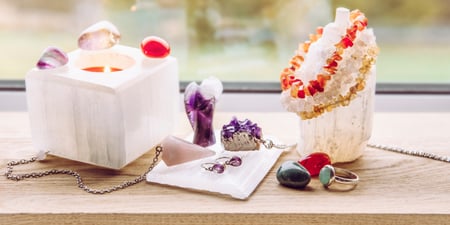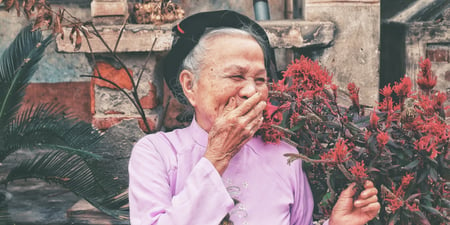
And now, in 2021, after a year of government announcements, media reports, distressing footage, cancelled flights and countries in and out of lock down (as well as a myriad of conflicting conspiracy theories), we still find ourselves in the midst of the COVID-19 global pandemic[1].
How this affects your health
For the majority of us, this unfortunate reality has become our daily life, wreaking havoc on our ability to make plans, socialise and simply function in the way we have always been accustomed.
The risks associated with contraction of the actual virus aside, there’s very few people on Earth who’ve witnessed a phenomenon like this in our lifetime[2].
Social distancing and quarantine measures have quickly become the norm[3]. Occurrences in the day-to-day we often take for granted such as work, plane travel, events and sport have been disrupted. This has left many of us understandably feeling out of control, fearful, and pessimistic about the future.
Even the vaccine being rolled out globally[4] is subject to changeable and varying views regarding its efficacy, safety and accessibility.
Which leaves many of us still feeling unsure about so many aspects of our lives.
Questions you may be constantly asking yourself include – how could my health be affected? How is this impacting my family? Is my employment secure? What is the future of the economy? Even when we reach a point of perceived normality, things are subject to often and frequent change.

There are very few of us who like living in a world of no answers, or never quite know what's next.
It's well documented that stress can affect your immunity, especially for prolonged periods. Lowered immunity increases your chances of contracting any illness[5]. Especially when they are highly contagious.
So where does love come into this?
Tinder and other dating sites set up advice on their dating apps around hygiene, hand washing and social distancing norms[6] to reduce the risk of infection and spreading of COVID-19.
Which stands to reason, but that’s another article, for another time.
The type of love I’m referring to is self-love. And let’s face it, when you have work commitments, children (and the ongoing potential or reality of school closures), a partner, parents and a myriad of other responsibilities, self-love at the moment sounds at best, time consuming, and at worst, narcissistic.
Well, I’m here to tell you it’s not.
Have you heard of the oxygen mask analogy before on a plane? You always put yours on first and then others second. It’s simple. You can’t be of service to anyone else unless you are looking after yourself.
Possibly the greatest gift you can give to family, friends, colleagues and our planet in this pandemic is to comply with your obligations as a member of the public whilst maintaining reasonable stress levels and focus on your health.
This may sound easier than it is. Self-love means being mindful of habits that don’t serve you and reserving a bit of time (even 10-15 minutes a day is enough) to do something nice - just for you.
7 ways to get more love and stress less in a pandemic:
1. Keep a check on your media consumption
This is a tough one. It’s incredibly important to keep across significant developments from the media during this time of uncertainty. However the effect of reading every media report, social media post and newsfeed article can be very stressful. Set a schedule that you feel comfortable with rather than being glued to your feed constantly. It will free up your time to focus on other things.
2. Exercise
As low to moderate-intensity exercise naturally lowers cortisol levels and helps with immune-system function[7], doctors recommend 30 to 60 minutes each day. If you’re worried about germs in the gym, walk or run outside in good distance from others.
3. Vitamin D
Vitamin D, also known as the "sunshine vitamin", is widely known for its benefits to bone health, however it also has a myriad of other benefits including reducing the risk of depression, some cancers, strengthening muscle and fighting infection. Research suggests even a small exposure to sunlight each day has tremendous benefits for your well being.
4. Do something small for yourself every day
Whatever makes you feel happy, set some time aside each day to do it. It may be drinking a cup of tea in the sunshine, a virtual yoga class, gardening or listening to a meditation or calming music. You could even start chipping away at that decluttering project for your home or garage.
5. Get adequate sleep
One of the greatest immune boosters is adequate sleep. Try to find a ritual or routine that assists you to fall asleep - and stay asleep each night. This may mean cutting back on news and caffeine just before bedtime - replaced with reading a good book, listening to calming music or meditation.
6. Write it all down
Spend a few minutes each day journaling – don’t worry too much about what you write just write! There is plenty of evidence to show the benefits and catharsis[8] of this routine during stressful period of life.

7. Gratitude
There is still so much to be grateful for.
For instance, acknowledging the incredible work of our health professionals, emergency workers, and volunteers across the world that lie at the face of this virus treating those affected. Our teachers, who rise every day and look after our children in times of good or bad. Specialists working with governments to ‘flatten the curve’ [9] in order to reduce the spread of infection. The media, who work around the clock to keep us up to date with news.
Our family, friends, children, pets, the outdoors and nature, the list goes on...
Feeling loved?
All the above suggestions are to address physical, mental and spiritual health. Choose which ones work for you and include them in your daily routine.
We shouldn’t need a pandemic to remind us to look after ourselves, however it’s never too late to start.
References
1. WHO Director-General's opening remarks at the media briefing on COVID-19 - 11 March 2020. WHO; 202o.
2. 1918 influenza: The deadliest pandemic in history. Live Science; 2022.
3. Pandemics Kill Compassion, Too. The New York Times; 2020.
4. How COVID-19 vaccines were developed in record time, without compromising safety. ABC News; 2021.
5. Stress, Illness and the Immune System. Simply Psychology; 2023.
6. Tinder tells users coronavirus safety is 'more important' than dating and urges them to wash hands, carry hand sanitiser and 'maintain social distance' when out in public. Mail Online; 2020.
7. Facts (and Myths) About Boosting Your Immune System. The Wall Street Journal; 2020.
8. The Mental Health Benefits of Journaling. Psych Central; 2022.
9. Why outbreaks like coronavirus spread exponentially, and how to “flatten the curve”. Washington Post; 2020.
Disclaimer: This Content has been developed from our generous global community and is intended for informational purposes only. This Content is not, nor is it intended to be, a substitute for professional medical advice, diagnosis, or treatment and should never be relied upon. Further, the personal views and experiences published are expressly those of the author, and do not represent the views or endorsement of SoulAdvisor through the act of publication on our site.










































